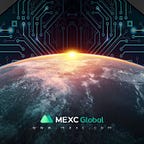MEXC Global Research: Kusama Ecosystem DeFi Infrastructure Karura (KAR) Market Analysis
Source: Acala Network
I. Project Introduction
Karura is the Polkadot ecosystem DeFi infrastructure Acala’s sister network, and it is also the DeFi hub in the Kusama network. It provides a series of DeFi infrastructure, including staked derivative LKSM, stablecoin kUSD based on multiple collaterals, and automated market maker platform Karura DEX. Moreover, all functions only require extremely low Gas Fees, and any assets in the platform can be used to make Gas Fee payments.
Karura has both scalability and EVM compatibility. Based on Kusama’s ecosystem, it is a customized network for cross-chain DeFi.
There are three underlying assets on the Karura network:
- Cross-chain excess multi-mortgage stablecoin kUSD;
- LKSM is the native asset of the Karura network. Whenever the user stakes a certain amount of KSM in the Kurura stablecoin protocol module, the protocol will send LKSM of equal value to the user according to the real-time exchange rate at the time. The user can exchange LKSM back to the primary asset KSM at any time.
- Governance asset KAR
Karura has won the first-ever parachain slot in Kusama’s first auction. Many people expect the Polkadot ecosystem to have a robust cross-chain DeFi ecosystem that is comparable with Ethereum. As Polkadot’s one-stop DeFi aggregation platform, Acala provides borrowing, lending, Stake, and AMM-based DEX. In addition, Acala also plans to launch NFT-related businesses.
The DeFi services provided by Acala are not only for ordinary users but also for project parties and developers. Acala provides developers with a smart contract module compatible with Ethereum, which can interact with Runtime directly. For example, Amara is an asset lending service provider built on Acala.
Similarly, as the sister network of Acala, as mentioned above, Karura, as the DeFi infrastructure of Kusama, is not only the pre-production test environment of Acala for Polkadot’s DeFi infrastructure. For Kusama’s network, Karura is expected to do the same for the ecosystem development of Kusama’s DeFi.
II. Tokenomics
The total supply of KAR is 100 million tokens, without inflation. They will all be issued at Genesis. Among them:
- 10.08% were distributed to supporters, one-month lock-up period, and the release will be completed five months later;
- 10% were distributed to the founding team, 18-month lock-up period, and the release will be completed five months later;
- 18.33% were distributed to early supporters, 12-month lock-up period, and the release will be completed 12 months later;
- 60.87% were allocated to the community. The community allocation is distributed as follows:
- 10.25% for Reward Reserve rewards;
- 34% for slot auction awards and project liquidity;
- 5% for ecosystem development;
- 11.62% were allocated to Treasury / Reserve.
III. Investment Institutions
According to the previous official disclosure, Acala Network completed two rounds of financing totaling $8.5 million USD, with investor institutions including Polychain, Pantera Capital, Hashkey, KR1, 1confirmation, DCG, Arrington XRP capital, etc.
Acala has received two sponsorships from the Web3 Foundation, namely for decentralized stablecoin and EVM. At present, 20 institutions are investing in Acala, including some well-known crypto venture capital institutions, with a relatively luxurious lineup.
IV. Practical Value Analysis
- Network trading fee: a small amount of gas charge for network trades and smart contract execution;
- Node incentive: Motivate network nodes to monitor and deliver messages to Kusama;
- Governance: Give communities the power to vote, such as choosing council members. Promote the development of Karura;
- Algorithmic risk control: Automated control of risk parameters, such as interest and collateral rate;
- Deployment of Runtime Pallet: Allow the development team to deploy Runtime Pallets to Karura network with KAR as a guarantee;
- Smart contract deployment: Allow the development team to deploy new DApps and smart contracts with KAR as a guarantee.
